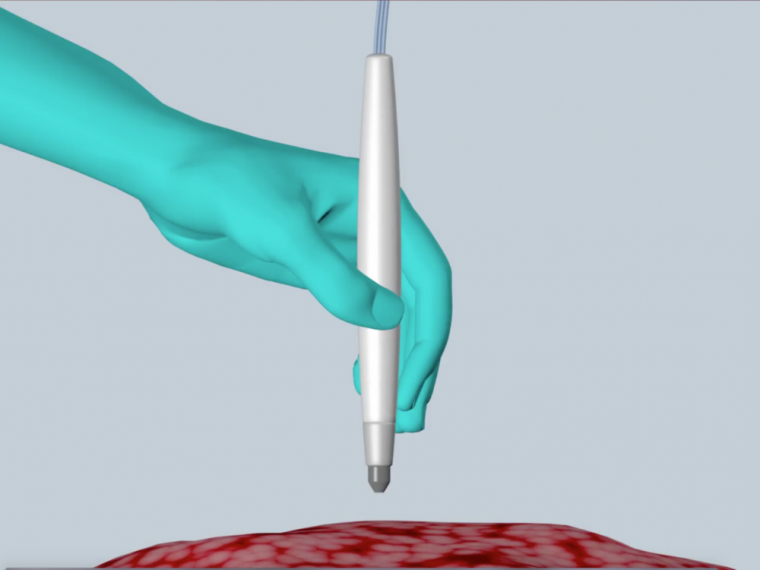A team of scientists and engineers at the University of Texas at Austin (USA) has invented a powerful tool that quickly and accurately identifies cancerous tissue during surgery, achieving results in approximately 10 seconds, more than 150 times faster than current technology.

The device, named MasSpec, represents an innovative, pen-like handheld instrument that provides surgeons with accurate diagnostic information on which tissue to cut or preserve, helping to improve treatment and reduce the chances of cancer recurrence.
Our technology could greatly improve the chances that surgeons will eliminate any trace of cancer during surgery," explains Livia Schiavinato Eberlin, co-author of the paper.
The current method of diagnosing cancers and determining the boundary between cancer and normal tissue during surgery is slow and sometimes inaccurate. Analysis of each sample may take about 30 minutes, which increases the patient's risk of infection and the negative effects of anesthesia.
MasSpec Pen: fast and accurate
In tests on tissue extracted from 253 cancer patients, the MasSpec pencil took about 10 seconds to provide a diagnosis with 96% accuracy, including marginal regions between normal tissues and tissues with mixed cell composition.
"Every time we can offer the patient more precise surgery, faster surgery or safer surgery, it's something we want to do... This technology does all three, because it allows us to be much more precise about what tissue we remove and what we leave behind," says James Suliburk, co-author of the study.
The greatest fear of patients undergoing surgery is that doctors will not be able to eliminate all traces of cancer.
Removing too much healthy tissue can also have profound negative consequences for patients, such as an increased risk of painful side effects and nerve damage, in addition to cosmetic impacts (as in the case of breast cancer).
How it works
Living cells, whether healthy or cancerous, produce small molecules called metabolites. These molecules are involved in many important processes such as energy generation, growth and reproduction, as well as other useful functions such as the elimination of toxins. Each type of cancer produces a unique set of metabolites and other biomarkers that act as fingerprints.
"Because the metabolites in cancer and normal cells are so different, we extract and analyze them with the MasSpec pen to obtain a molecular tissue trace."Eberlin explains.
The molecular fingerprint obtained by MasSpec is instantly evaluated by a software, called a statistical classifier, trained on a database of molecular fingerprints that includes normal and cancerous tissues from the breast, lung, thyroid and ovary.
When the MasSpec pen completes the analysis, the computer displays the words "Normal" or "Cancer". It's as simple as that. Experts believe that for certain types of cancer, the name of the subtype may also appear.
The effectiveness of the device is indisputable. In tests carried out on human samples, the device was more than 96% certain to diagnose cancer and did not cause any observable tissue or stress damage (in rodent experiments).
The team hopes to use this new technology already during oncology surgeries in 2018.